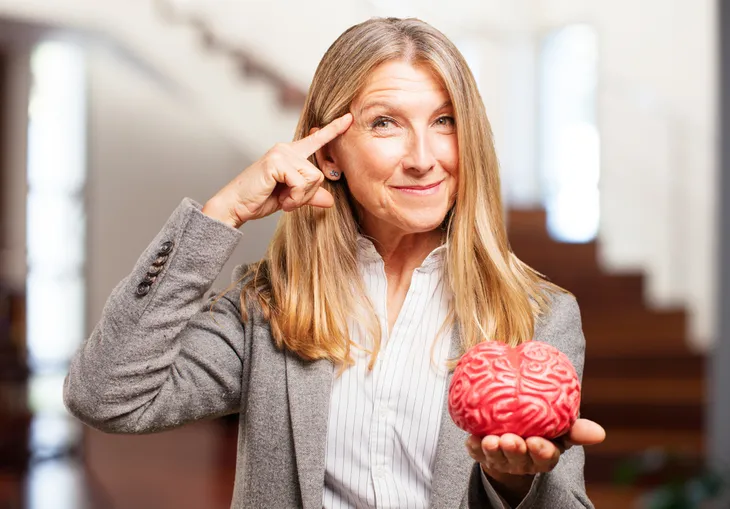The health benefits of physical activity are undeniable.
Yet, a recent study based on data published over the past 30 years challenges the famous adage Mens sana in corpore sano (a healthy mind in a healthy body) and questions the importance of exercise for both brain health and cognition.
A few days after that study was published, our team of health and neuroscience researchers released the results of our study of over a quarter million people. Our results clearly support the beneficial effects of both moderate and vigorous physical activity on cognitive functioning, fuelling an important scientific debate.
Who is right and who is wrong? Here’s what the science says.
Is physical exercise useless for cognitive functioning?
The first study was published on March 27, 2023. It is a review of 24 meta-analyses that re-examines data from 11,266 healthy people using a more rigorous approach.
Although almost all of the 24 meta-analyses included in this review concluded that exercise had a positive effect on cognitive function, the authors argue that the analyses performed were suboptimal. For example, they point out that both baseline levels of physical activity and the tendency of the scientific community to publish only significant results were rarely taken into consideration. Once these adjustments were made, the authors found results suggesting that the benefits of exercise are actually smaller than those estimated in the previous meta-analyses, and may even be negligible.
Based on these findings, the authors argue that public health agencies such as the World Health Organization (WHO) should no longer state that physical activity improves cognitive health, academic performance, and executive function, “at least until more reliable scientific evidence accumulates.”
Well, that evidence didn’t take long to arrive.
Genetics and DNA to the rescue
The second study, ours, is a genetic study involving nearly 350,000 people, published four days later, on March 31, 2023. Our results provide scientific evidence for the cognitive benefits of moderate and vigorous physical activity.
This evidence is based on the two-sample Mendelian randomization method, which takes advantage of the random variations in our DNA that occur at conception, before we are even born.
When any two humans are compared, 99.9 per cent of their genetic material is identical. DNA can be thought of as a long chain of building bricks, called nucleotides, that varies once every 1,000 bricks between these two humans. There are four types of randomly arranged bricks: thymine, adenine, guanine, and cytosine. Genetic variations can result in, for example, a cytosine brick in one place in one person’s DNA and a thymine brick in the same place in another.
The first sample in our study, consisting of 91,084 people, was used to identify genetic variations associated with differences in physical activity, as measured by wrist-worn motion sensors.
The second sample in our study, consisting of 257,854 people, was used to test whether the genetic variations associated with physical activity had a proportional effect on cognitive functioning. Since this was the case, we were able to conclude that there is a causal effect of physical activity on cognitive function.
Moderate exercise goes a long way
In our study, we show that physical activity improves cognitive functioning, but more importantly, that the effect of moderate physical activity (brisk walking, cycling) is 1.5 times greater than that of vigorous physical activity (running, playing basketball). This finding highlights that we do not need to push ourselves to the point of exhaustion to get cognitive benefits from exercise.
When all types of physical activity were considered together (including sedentary and light physical activity), our results no longer showed an effect on cognitive function. This finding confirms the importance of achieving at least moderate intensities to reap the cognitive benefits of physical activity.
Our results are consistent with those of a recent study that emphasizes the importance of exercise duration and intensity for the release of a protein called BDNF in the brain. This protein is involved in the creation of new neurons, new connections between these neurons, and new blood vessels to feed them.
This protein, whose production increases during exercise, is therefore one of the physiological mechanisms that explains the beneficial effects of physical activity on cognitive function. The very existence of this explanatory mechanism further strengthens the results supporting a beneficial effect of exercise on brain functioning.
It’s never too late to get started
Several differences may explain the discrepancy in results between the review of meta-analyses and our genetics-based study.
First, the review looks only at healthy people, which is not the case in our study. Second, our study distinguishes between light, moderate, and vigorous physical activity, whereas the review does not make this distinction. Finally, our genetic approach evaluates long-term effects, over a lifetime, whereas the review is based on interventions lasting between one month and two years.
As we are dealing with the temporal aspects of physical activity here, it is important to remember that it is never too late to start exercising. In fact, a 2019 study showed that starting to be active late in life has the same overall positive health effects as being active throughout life.
Conclusion: Hasty decisions are never good
Based on our findings, it appears that physical activity can still be considered beneficial for brain health and cognition. Moreover, in the current socio-political climate of mistrust of science, we should not jump to conclusions on the basis of a single study that contradicts years of research, yet is based on the very same data.
As is often the case in science, it is wiser not to make hasty decisions but to wait for additional studies before suggesting changes to physical activity guidelines. The accumulation of converging evidence from different research teams should be a prerequisite for changing public health messages. As this article shows, we are nowhere near that point, and the benefits of physical activity on a wide range of physical and mental health outcomes remain undeniable.
Matthieu P. Boisgontier, Associate Professor, Faculty of Health Sciences, L’Université d’Ottawa/University of Ottawa and Boris Cheval, Senior Researcher, Swiss Center for Affective Sciences, Université de Genève
![]()
This article is republished from The Conversation under a Creative Commons license. Read the original article.








